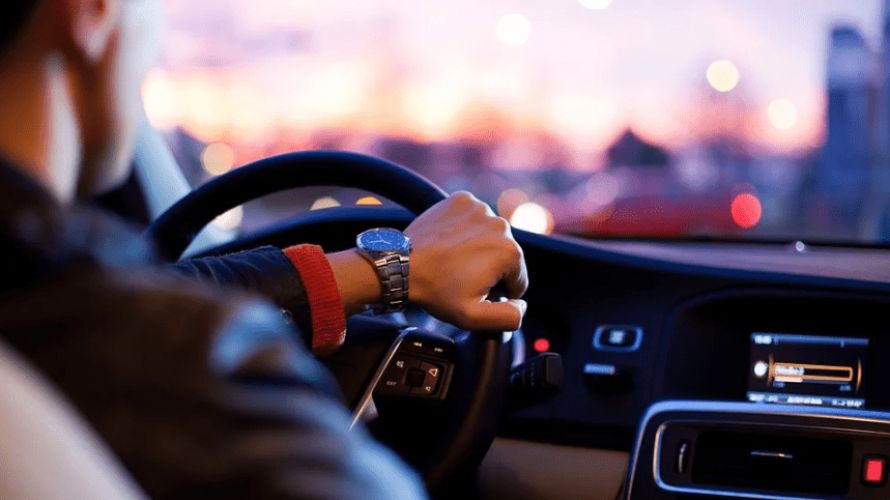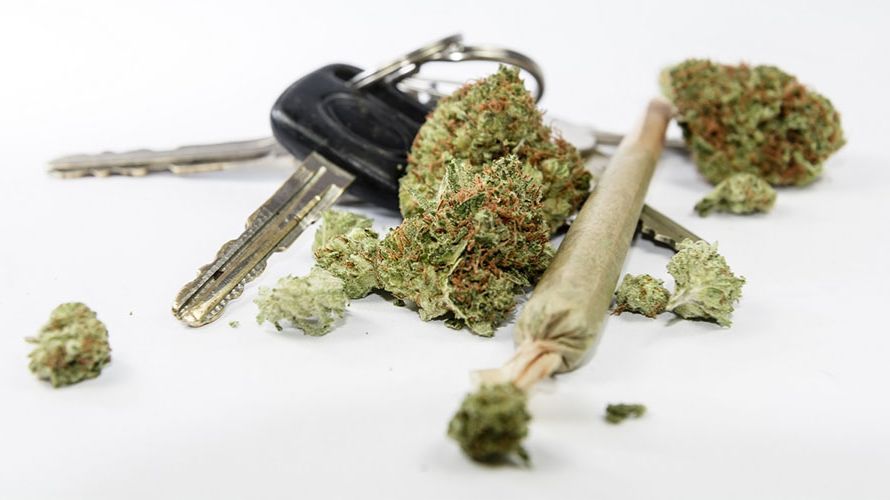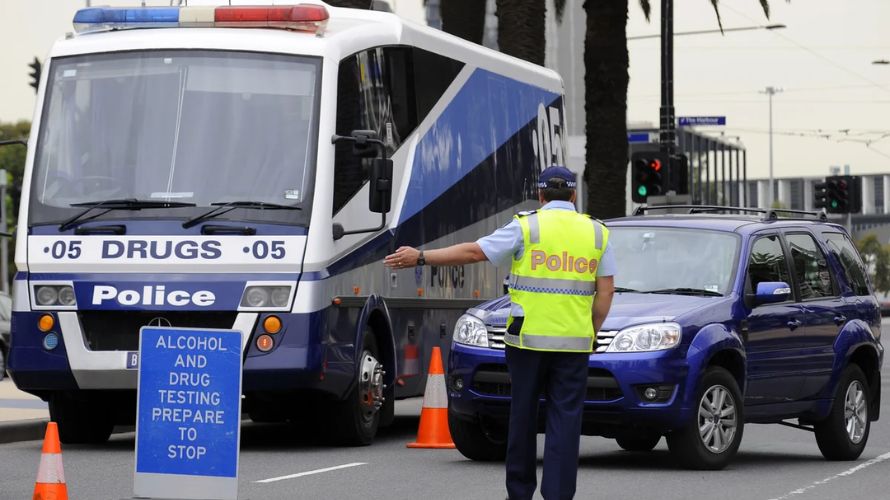Cannabis and Driving Laws in Canada: What Every Driver Needs to Know Before Getting Behind the Wheel

Is It Legal to Drive High in Canada? The Answer Could Cost You More Than You Think
Weed has been legal in Canada since 2018.
In most provinces in Canada, adults (19 years old and above) can legally buy order weed online from a reputable cannabis store.
But does this mean you can operate a vehicle under the influence of cannabis?
No, you shouldn’t.
Cannabis and driving laws in Canada are strict, and operating a vehicle while high on cannabis is illegal.
Canadian law enforcement agencies have implemented strict measures to combat DUI ( driving under the influence), including roadside cannabis impairment tests.
- So, what are cannabis and driving laws in Canada?
- Is it legal to drive high in Canada?
- What are the consequences of driving under the influence of weed?
- What’s the legal blood THC limit for driving?
- Are there weed-impaired driving penalties?
If you have such questions, you have come to the right place.
In our well-detailed guide, we’ll discuss all you need to know about DUI cannabis laws in Canada, including the consequences of driving under the influence of weed.
We will also discuss how safe weed consumption habits will help you stay on the right side of the law.
This involves purchasing BC bud online from a credible source such as Chronic Farms.
Chronic Farms, a reputable online weed dispensary, is known for only stocking high-quality, lab-tested products.
Order weed online from us today to enjoy cannabis responsibly while also making informed decisions about when it’s safe to drive.
Ready to learn more about cannabis and driving laws in Canada?
Let’s get started, shall we?
Is It Legal to Drive High in Canada?
Since the legalization of cannabis in 2018, many stoners have wondered, ‘Is it legal to drive high in Canada?’
And the answer is no.
Under the cannabis and driving laws in Canada, driving while high is treated similarly to alcohol impairment.
Even if you feel sober, THC can affect your reaction time, judgment, and motor coordination, jeopardizing public safety.
If caught, your licence can be suspended, be fined or even serve a jail term.
Understanding Cannabis and Driving Laws in Canada
DUI cannabis laws Canada are there to ensure road safety.
The Criminal Code prohibits driving while impaired to any degree by cannabis.
In addition to the offence of impaired driving, there are separate offences of having specified prohibited levels of cannabis in the blood.
In Canada, there are established legal blood THC limits for driving to determine impairment.
If you have 2-5 nanograms (ng) of THC per ml of blood, it’s considered a minor offence.
It is a more serious offence to have more than 5 ng of THC or more per ml of blood.
What about weed-impaired driving penalties in Canada?
Under the cannabis and driving laws in Canada, impaired drivers can face penalties depending on whether it is their first or a repeated offence.
And whether they have caused bodily harm or death to another person.
For instance, if you have over 2 ng of but less than 5 ng of THC per ml of blood within 2 hours of driving, you will be fined a maximum of $1000 for a first, second, and third offence.
If you have 5 ng or more of THC per ml of blood within 2 hours of driving, the weed-impaired driving penalties are more severe.
A first offender will be fined a minimum of $1000 or serve a maximum of 10 years imprisonment.
Second offenders may face a minimum of 30 days jail term or a maximum of 10 years imprisonment.
Repeat offenders can serve a minimum of 120 days in prison up to a maximum of 10 years.
If you cause bodily harm to another person, you can be punished with a maximum of 14 years imprisonment or a summary conviction of up to two years less a day.
How do police determine if you are driving under the influence of weed?
New technologies like cannabis breathalyzer Canada have become a fast and accurate way to detect the presence of THC in your body.
The police can demand roadside cannabis impairment tests if they reasonably suspect there’s a drug in your body.
They can use objective facts such as red eyes, muscle tremors, abnormal speech patterns, etc.
Can I refuse to comply with a demand for the sample?
If you refuse to take roadside cannabis impairment tests, you risk a minimum of $2000.
Is It Legal to Drive High in Canada? How Cannabis Affects Driving Ability
Now that you know the cannabis and driving laws in Canada let’s take a look at how cannabis affects driving ability.
Weed contains THC that binds to the cannabinoid receptors, primarily CB1 and CB2, which are found throughout the body, including the brain.
These receptors contribute to memory function, coordination, reaction time, and perception.
When THC binds to cannabinoid receptors in your body, it can cause slower reaction time, impaired judgment, and decreased coordination.
This increases the chances of an accident that could harm you, your loved ones, or other road users.
As a result, THC and driving safety have become major concerns due to cannabis’s impact on driving ability.
So, does cannabis affect driving based on the consumption method?
Yes, it does.
The method you use to consume weed will determine how long the effects last and how strongly it affects driving ability.
For instance, if you smoke or vape quality weed ordered from our online weed dispensary, you will experience fast-acting effects, usually within seconds to minutes.
The effects can last up to 2-4 hours. However, some impairment may persist for up to 6 hours, depending on the strain and THC content.
The fast-acting effects will lead to slower reaction time and impaired focus and coordination, making driving highly dangerous.
Even if you feel mildly high, avoid driving or operating a vehicle.
So, how long to wait after smoking weed to drive?
It’s recommended to wait up to 8 hours after smoking a single dose.
Can I drive after using edibles?
The answer is no.
Edibles are known for their slow-acting effects, typically within 30 minutes to 2 hours after consumption.
The effects can last 6 to 12 hours, increasing the risk of unintentional impairment.
Conversely, concentrates are known for their high potency and powerful buzz, which makes driving even riskier.
Still wondering, ‘Is it legal to drive high in Canada depending on the consumption methods?’
The answer is still no.
Weed-impaired driving is risky and illegal, regardless of the method used.
Please familiarize yourself with cannabis and driving laws in Canada to stay compliant with the law and ensure safety.
Roadside Cannabis Impairment Tests in Canada
Under the cannabis and driving laws in Canada, police officers can conduct roadside cannabis impairment tests to determine if there is THC in your body.
Several tests are done to detect cannabis impairment on the road, including:
– Standardized Field Sobriety Tests (SFSTs)
These tests determine your physical coordination, including balance, attention, motor skills, etc.
The SFSTs consist of preliminary questions, an eye exam, and movement tests like walk-and-turn.
– Use of Cannabis Breathalyzer in Canada
A cannabis breathalyzer is a newer technology that can detect recent cannabis use through breath samples.
It’s a more effective and faster method to enforce cannabis and driving laws in Canada, as it can detect weed use within 2-3 hours.
– Oral Fluid Swab Tets
These tests detect the presence of THC within the past 6-8 hours.
If the results are positive, law enforcement may order a blood test to measure the exact level of THC in your system.
Quick Reminder: Under the Cannabis and driving laws in Canada, 2 to 5 ng of THC in the blood may lead to fines, while over 5 ng/ml is considered a criminal offence.
With these tests, police can enforce cannabis and driving laws in Canada to ensure our roads are safe for all.
Is It Legal to Drive High in Canada? Safer Alternatives
Is it legal to drive high in Canada?
Driving under the influence of weed is not only illegal but also dangerous.
Here, we have provided safer alternatives to use after consuming weed.
– Have a Designated Driver
Are you planning to consume weed?
Arrange for a sober friend or family driver to drive.
This will help you avoid driving while under the influence, which can endanger you and other road users.
– Use Rideshare Services
You can use cab service providers like Rogers’ #TAXI service or Uber.
This ensures you arrive safely without the risks of impaired driving.
– Use Public Transportation
You can also use buses and trains to enjoy a cost-effective way to travel from one place to another.
Additionally, it’s crucial to buy weed online in Canada from a trusted online weed dispensary with convenient delivery.
Buying cannabis online from us ensures you only receive well-labeled and high-quality products.
Always choose a credible source to order weed online and plan for safe transportation to enjoy responsibly without endangering yourself or others.
Stay Safe, Stay Legal: Know the Cannabis Driving Laws and Enjoy Quality Weed from Chronic Farms
According to cannabis and driving laws in Canada, it’s illegal to drive while under the influence of weed.
Weed use may affect your response time, decision-making, focus and even coordination, increasing chances of an accident.
If caught, you risk a fine, licence suspension or jail term.
How do law enforcement agencies in Canada determine if you’re DUI of weed?
Police officers use multiple roadside cannabis impairment tests to determine the legal blood THC limit for driving.
They can use SFSTs, cannabis breathalyzers, or oral swabs.
Now that you know it is illegal to drive high in Canada, what should you do to move from one place to another?
For starters, ensure you have a designated sober driver in your group.
You can also use a cab or public transport to avoid weed-impaired driving.
To enjoy cannabis responsibly, always choose high-quality, well-labeled products from a trusted source like Chronic Farms.
Shop with confidence and plan for safe transportation.







